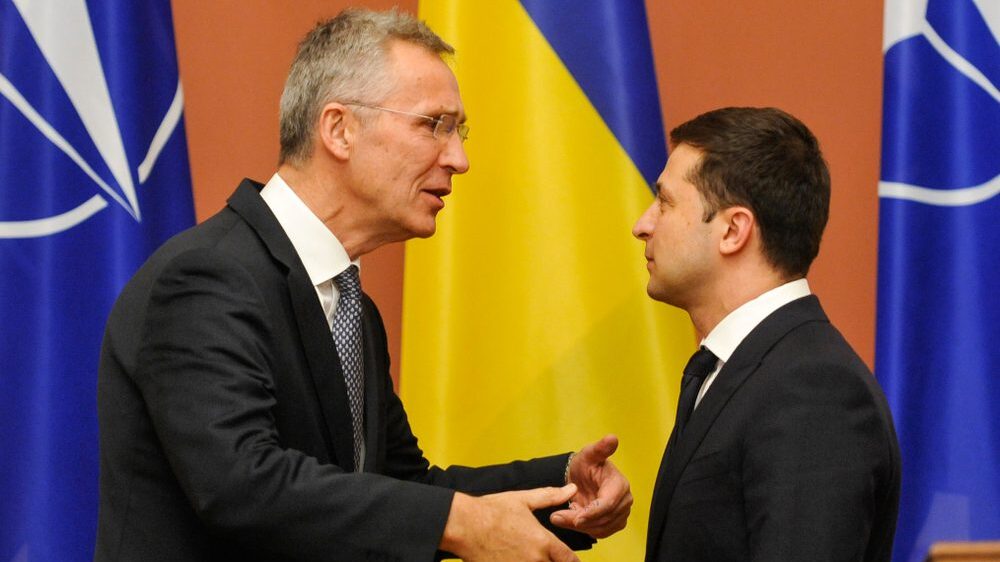
Nato Secretary Jens Stoltenberg speaks to Ukrainian President Volodymyr Zelensky.
Ukraine can join NATO, but not in the near future, the head of the military alliance has warned. Kyiv made a formal application for fast-track membership in September, but it appears that no amount of Western well-wishing will speed up any such process.
Jens Stoltenberg, secretary general of NATO, said this week that Ukraine’s accession is a long-term project. He added that it was better for Volodymyr Zelensky’s administration to focus now on prevailing against Russia’s invasion.
Addressing reporters in Helsinki, Mr. Stoltenberg said:
NATO allies have agreed that Ukraine will become a member of our alliance, but at the same time that is a long-term perspective. What is at issue now is that Ukraine can prevail as a sovereign independent nation.
More than a year on from the beginning of the war in Ukraine, the West is continuing to offer all in the way of talk, as well as an enormous amount of funds and, increasingly, arms. There is, however, a continued unwillingness to quickly bring Kyiv into the Western fold, as has also been demonstrated by Ukraine’s attempts to join the European Union, with bloc officials admitting this could take “several decades.”
Responding to Mr. Stoltenberg’s latest comments, David Zaikin, who co-founded the London-based advisory group Ukraine Momentum following the February 2022 invasion, said the military alliance’s pledge “isn’t good enough.” He added that “Ukraine needs guarantees that this atrocity can never happen again.”
Ukraine’s proposed membership in NATO is not, however, as clear-cut as some might wish. Speaking in June last year, Pope Francis described a conversation with “a wise man,” left unidentified, who
told me that he was very worried about how NATO was moving. I asked him why, and he replied: ‘They are barking at the gates of Russia. They don’t understand that the Russians are imperial and can’t have any foreign power getting close to them.’
Ted Galen Carpenter, an author and senior fellow in defence and foreign policy studies at the Cato Institute, has also written that “Vladimir Putin bears primary responsibility for this latest development, but NATO’s arrogant, tone-deaf policy toward Russia over the past quarter-century deserves a large share as well.”
The war itself has, however, softened the views of some, including former U.S. Secretary of State Henry Kissinger, who had long held that NATO should maintain a distance from Russia, and, by extension, stay out of Ukraine.
